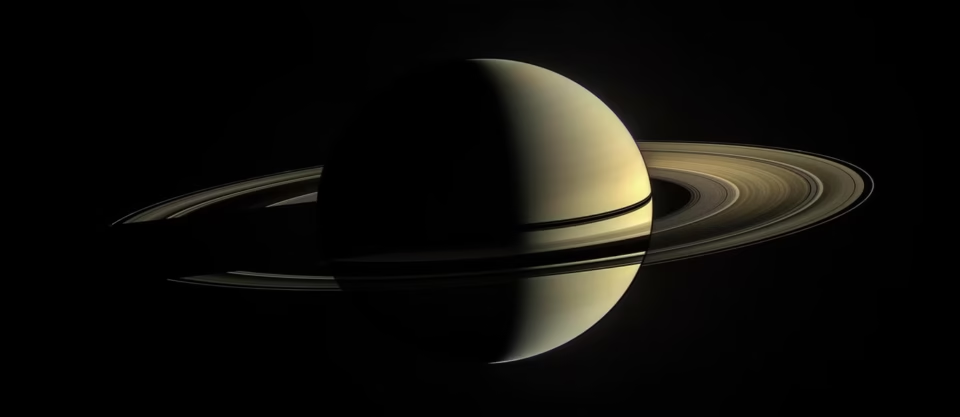Scientists Discover Organic Molecules on Saturn’s Moon Enceladus, Raising Hopes of Alien Life
October 1, 2025
In a remarkable discovery, scientists have detected fresh organic molecules emerging from Enceladus, one of Saturn’s icy moons. The finding strengthens the theory that this distant world could be capable of supporting alien life.
According to researchers, these organic compounds are similar to those involved in the chemical reactions that create life on Earth. The new evidence increases the likelihood that Enceladus’s underground ocean may contain the essential ingredients for life to exist.
🌌 Discovery from Saturn’s Mysterious Moon
Enceladus has fascinated astronomers for years. In 2005, NASA’s Cassini spacecraft revealed that the moon hides a massive liquid ocean beneath its icy surface. Since then, scientists have studied the powerful plumes of water vapor and ice particles that shoot from cracks near its south pole — the same jets where the new organic molecules were found.
Previously, Cassini detected similar materials, but experts questioned whether they had been altered by exposure to space radiation over centuries. Now, researchers confirm that freshly ejected grains also contain complex organic compounds — suggesting these molecules are being continuously formed within the moon’s ocean.
“These molecules we found in the freshly ejected material prove that the complex organic molecules Cassini detected in Saturn’s E ring are not just a product of long exposure to space, but are readily available in Enceladus’s ocean,” said Frank Postberg, co-author of the study.
🧬 Clues That Point to Habitability
The newly identified compounds include many that are vital for life on Earth, strengthening the belief that Enceladus could be habitable.
“There are many possible pathways from the organic molecules we found in the Cassini data to potentially biologically relevant compounds, which enhances the likelihood that the moon is habitable,” explained Dr. Nozair Khawaja, lead author of the research.
The team noted that there is still much more data to analyze. “We are looking forward to discovering even more evidence that could reveal the true potential of Enceladus’s ocean,” Khawaja added.
🌍 A Major Step Toward Finding Life Beyond Earth
This discovery, published in the journal Nature Astronomy under the title “Detection of Organic Compounds in Freshly Ejected Ice Grains from Enceladus’s Ocean,” adds to growing evidence that life could exist beyond Earth.
Enceladus continues to be one of the most promising destinations in the search for extraterrestrial life within our solar system. With every new revelation, scientists move one step closer to answering one of humanity’s oldest questions — are we alone in the universe?

